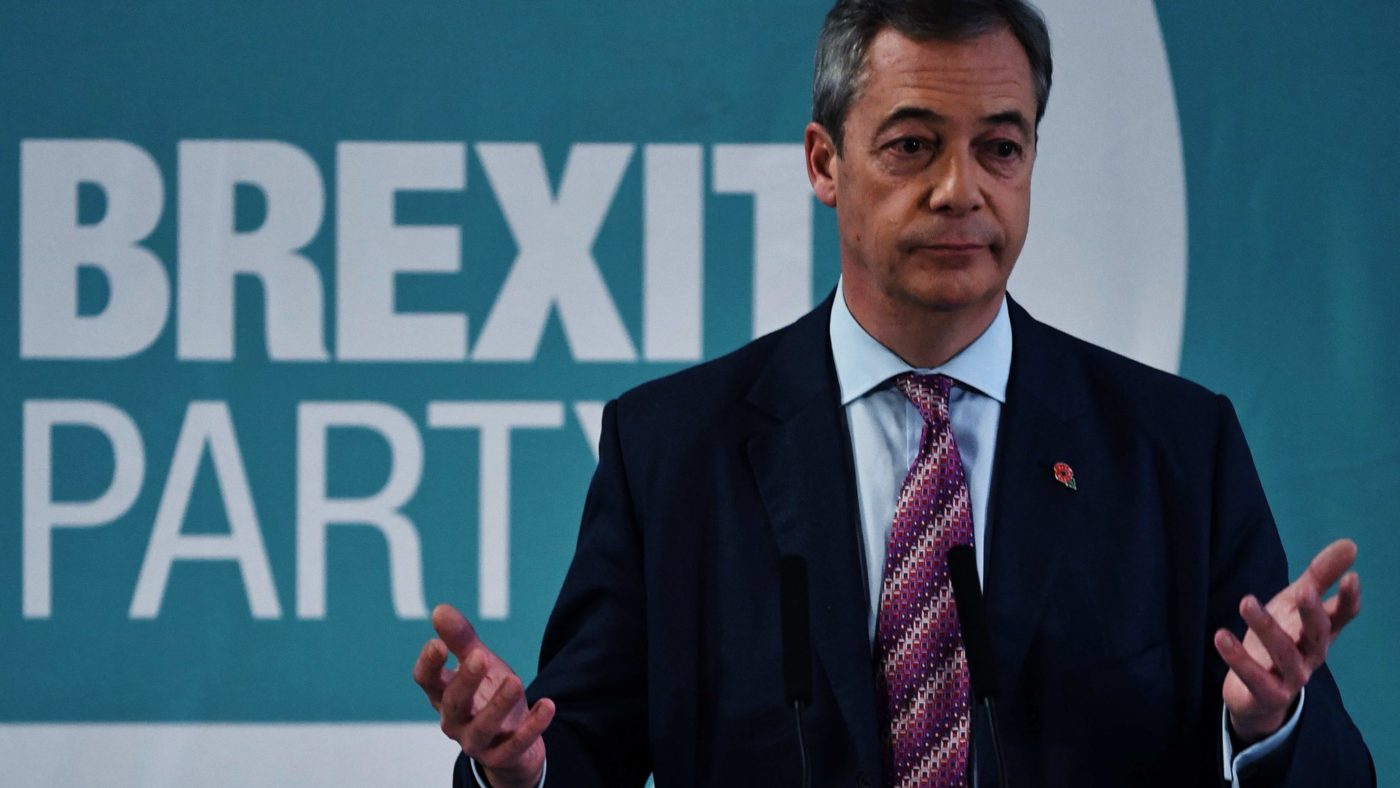It cannot have been easy for Nigel Farage to decide to pull his candidates out of hundreds of Conservative-held seats. But it must have been even harder to resist doing so.
The prospect of splitting the Leave vote was fracturing his coalition. Arron Banks, the man who bankrolled the ‘Purple Revolution’, is launching a ‘tactical voting app’ which basically seems to be telling people to vote Conservative.
Brexit Party supporters are reportedly being deluged with letters from Daily Mail readers urging them to step aside, and the rest of the right-wing press – including the Daily Telegraph and The Times – were also urging him to back off.
Meanwhile expert analysis continues to roll in suggesting that (much more than 2017) the Brexit Party is directly hurting the Tories and could cost them “up to 90 seats“.
By contrast the Conservatives are now lock-step behind the Prime Minister. Without a caucus of Eurosceptic Tory MPs to magnify his message, Farage’s leverage over Boris Johnson was limited, giving the latter political space to spurn a pact.
Yet the Prime Minister did help Farage along. Perhaps he was influenced by his Vote Leave strategists, so fond of military theory, into following Sun Tzu’s famous aphorism: “Build your opponent a golden bridge across which to retreat.”
It is in that light, I suspect, that we should view the Prime Minister’s pledge yesterday that he won’t extend the transition period beyond 2020. This, rather than the fanciful notion that Johnson will win a general election and then re-open his deal again, was the best the Brexit Party leader was going to get. He seems to have recognised that.
Of course, Farage is canny enough to know that it is almost certainly a meaningless promise. No would-be ally of the Prime Minister could look at his breathtakingly shameless volte-face on a border in the Irish Sea, less than a month from a party conference in which he reiterated his vows to the Democratic Unionists, and take a pledge from him on his conduct at such a remote date as next year remotely seriously.
It’s less a golden bridge, then, than a gilded one. But it has done the job, at least in the short term, of giving Farage a way of withdrawing with dignity. In the longer run, he may also calculate that once our formal departure from the EU is delivered the Conservatives’ internal discipline on Brexit will fracture again, and there may be much to be gained from holding Johnson’s feet to the fire over the transition period.
Which leaves the question of what impact this will have on the election. Whilst a lot can change in a campaign, at present it looks as if Farage’s decision will be somewhat, but not hugely, useful to the Tories.
This is because of where he has decided to pull his candidates out: seats the Conservatives won in 2017. Although this will definitely help the handful of MPs who made surprise gains that night, the great majority of ‘Labour Leave’ constituencies are currently in Labour hands. At ConservativeHome I’m doing region-by-region overviews of potential battleground seats and there remains huge potential for the Brexit Party to trip the Tories up by reviving UKIP’s pre-2016 vote shares.
Second, a lot of the crucial seats the Conservatives are defending this time are the Liberal Democrat-facing marginals they swept up in 2015. Their candidates will not hesitate to portray this decision as an ‘endorsement’ of the incumbent MP, especially since the Brexit Party are still fielding candidates elsewhere.
This could sting: one reason the Conservatives were so shy of a pact in the first place was evidence that it would cost them more votes lost to the Lib Dems and others than they would pick up from the Brexit Party’s core vote – hence why suggestions that they should reward Farage by pulling out of some seats in turn are misguided.
Tory MPs in Lib Dem-facing seats will already have to work especially hard to combat this guilt-by-association if they want to hold on to Remain-inclined Conservative/Lib Dem switchers. A pact would make that impossible.
It is also worth remembering the risk that this will sharpen the minds of pro-Remain tactical voters, exacerbating both of these problems even further.
For those reasons, then, this is not nearly so good for the Tories – and indeed, for Brexit – as a full Brexit Party withdrawal would have been. It may yet prove counter-productive. But it is almost certainly much harder now for Farage to follow his reasoning to its logical conclusion and withdraw completely, involving as it would two very public helpings of humble pie in less than a week. The die is cast.
Click here to subscribe to our daily briefing – the best pieces from CapX and across the web.
CapX depends on the generosity of its readers. If you value what we do, please consider making a donation.


